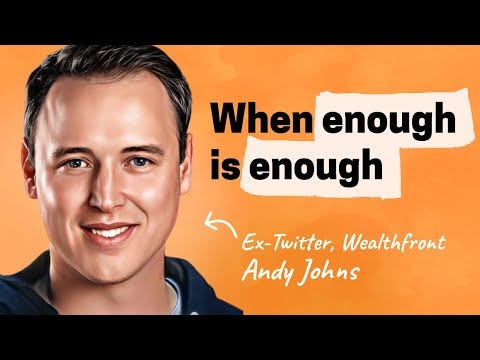AB #005: 50-60% of Product People experience burnout, what do we do, how do we go from here?
This edition of Axel's Bento 🍱 is dedicated to the topic of mental health. A topic close to my heart.
Product Squad is coming back soon with new episodes, incredible guests and an IRL Meetup in Paris on Wednesday, Oct. 4th.
📣 I’m looking for sponsors for the podcast.
Drop me a note if you want to know more!
In today’s bento…
💡 The silent epidemic ravaging tech (and product)
🍿 2 podcast episodes to help unpack mental health in tech/product
🏞️ A trip to Modena, Italy
🤓 GenAI nuggets so you can look cool at the next dinner party
🩺 My (free-for-now) Product+Career Clinic is open!
💡 Product, tech and burnout…
I’m both glad and terribly sad about this year’s back-to-school season.
Glad because 2 podcast episodes surfaced a topic that has long been lacking authentic shared experiences by leaders in the tech industry.
The 1st one is by my friend Timothé Frin, host of Clef de Voute where he hosts Nacera Benfedda (Product Leader), Alexis Colonna (PM) and Hanna Müller (Psychologist) for an open discussion on the causes and consequences of mental health issues within the product realm.
My first reaction listening to this episode was jealousy.
I thought to myself “I wish I was the one hosting this episode on my podcast” because truth is, the guests were brilliant and Timothé does an amazing job of getting to the bottom of things.
My second reaction was, “everybody needs to listen to this!”.
So here it is, if you’re a French speaker, don’t just add this to the endless list of podcasts you’ll never listen to. Do it, listen.
It’s pretty long, I had to do it in 3 sittings. But totally worth it.
➡️ Link to the episode (in French 🇫🇷) on Clef de Voûte
The 2nd one is Andy Johns’ experience on Lenny’s podcast.
Lenny says, “this might be the most important episode of the podcast yet”.
Here’s one of my favourite segments from the show.
We are born with the fundamental need to be connected and to be loved.
We are also born with the fundamental need to be ourselves and to express ourselves.
What ends up happening tho is that the world you were born into eventually conditions you away from the unique individual that you were.
That is the function of society.
Society operates because enough people chose to agree on the same beliefs and ideas.
That's the inertia of society.
[...]
Our love of being connected and loved is so great that we choose to push down our individuality in exchange for being accepted by the pack.
OK, no more spoilers…
➡️ Link to the episode on Lenny’s podcast
What do we do, how do we go from here?
Both these episodes quote a number of studies and examples across tech (and product) where burnout is not only prevalent but severe.
Which explains why I’m sad.
We don’t have to endure this.
I have seen many product people make career choices that they didn’t think possible pre-COVID.
Most of them did not leave product as a craft but rather decided to find a different way to practice, e.g. become solopreneurs, advisors, or remain on the IC track and become a Principal PM instead of managing others.
This job is demanding, for sure.
In fact, one of the first things I tell folks who want to move into product from an existing career is this:
It’s like constantly living on the edge of burnout.
I don’t say this to scare people away from the craft itself. I’m very passionate about product. However, there is a pattern to most rapidly growing tech companies who hire(d) aggressively over the past few years.
VC-backed (specially early and growth stage) means that everything is dictated by the pace of burn and runway. Which means the company is constantly fighting for its life. You get to experience a lot of things in a relatively short amount of time. It’s not good or bad, but you have to know what you’re getting yourself into. In all likelihood, this is not a 9-5 job.
I find that in more mature, larger companies, it is actually easier to find life balance. 9-5 is a thing. Also, people understand what it means to have kids, need self-care, flexibility and autonomy.
This is my personal experience, and of course there’ll be a number of counterexamples.
“Culture eats strategy for breakfast”…I’m sure you’ve heard this before.
The thing is…it’s true!
Of all companies I’ve been exposed to in the past 8 years, I consider only a handful to have intentionally positive cultures.
So unless the C-Levels in tech decide to treat mental health issues as a priority (at the root, not by buying everyone a Headspace account), I don’t think we’ll see significant change in the coming years.
If you’re interested in getting deeper into burnout and mental health in tech:
Tools
Yerbo has created a burnout index to get a pulse on individual and team burnout. There is a free “burnout risk” assessment tool available.
If you’ve enjoyed this newsletter so far, please consider leaving a comment. It helps others find and subscribe to this publication. Thank you!
🏞️ Worthy Eateries
In May 2017, about a year after my wife and I got married, we went on a trip to Modena, Italy.
It had always been a dream of mine, specially because Emilia Romagna is known to be one of the richest regions in Italy for gastronomy (Balsamic Vinegar, Parmigiano, Chianti, Parma ham, Tortellini, Tagliatelle...the list goes on and on).
The city has much more to offer than a wide range of treats.
We toured the Ferrari Museum, visited the house of Luciano Pavarotti (3 Tenors) and local wineries.
Modena is home to Osteria Francescana (see bottom-left photo), World’s Best Restaurant (2016 & 2018) where chef Massimo Bottura delights his diners with some of the best dishes on the planet. He is basically the pope in the fine dining world.


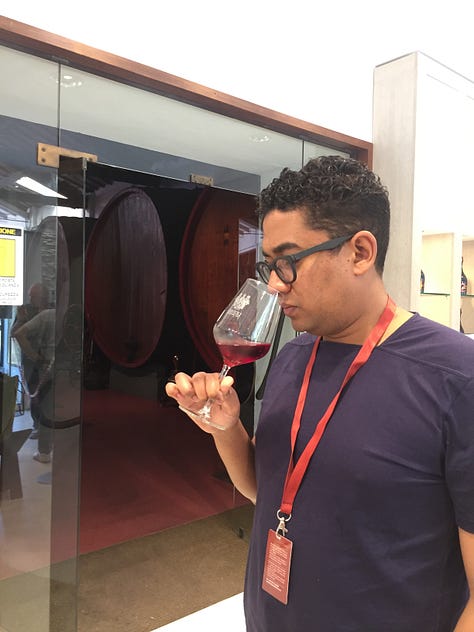


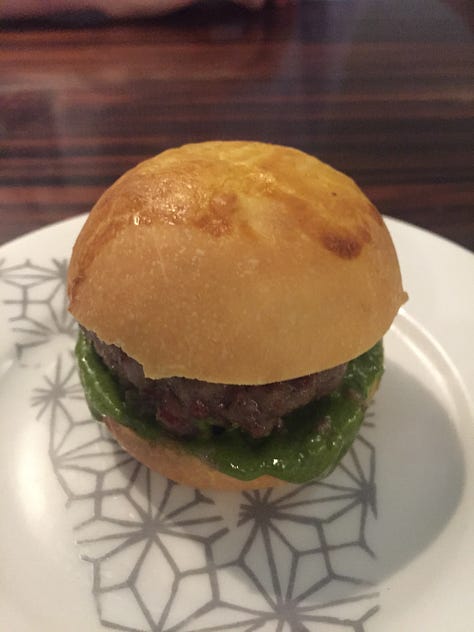
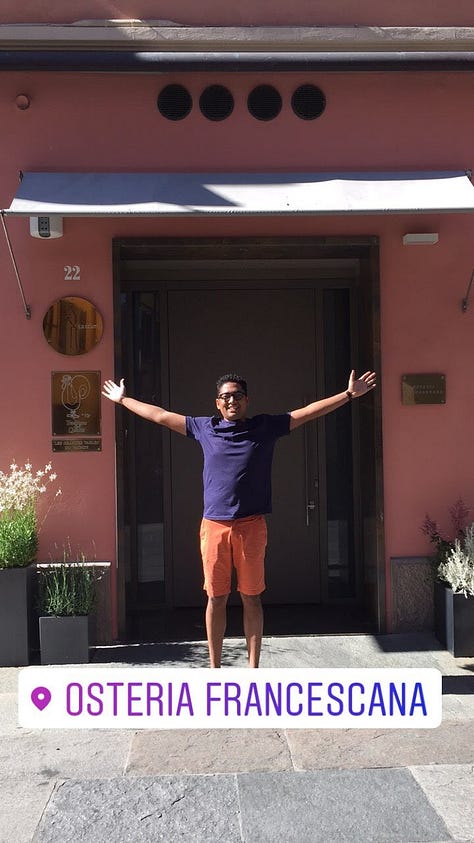

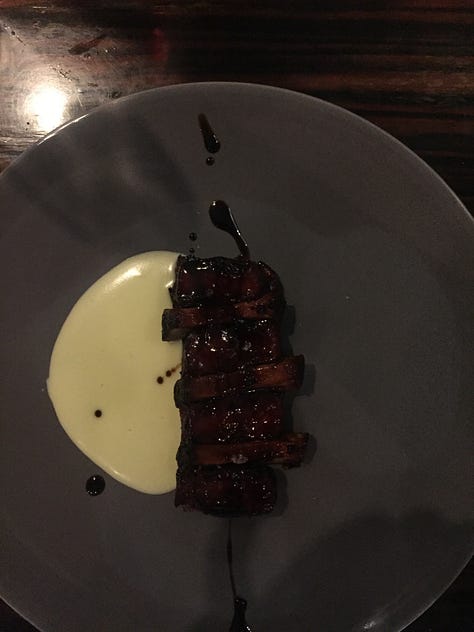
Bottom left: me re-enacting a scene from season 2, episode 2 of Master of None.
This trip was short and sweet, and I recall it being like a little cloud I did not want to get off of. But hey, all good things come to an end, they say.
A few places I’m happy to recommend in Modena
Francheschetta58
Hosteria Giusti
Trattoria Aldina
Gioelia Cremeria 🍦
🍦 Humans of Product
Each bento features a human I came to know.
I want to build a community where product people can really connect and help each other. ✨
Want to be featured?
Thanks 🙏🏽
🩺 (Free for now) Product Clinic
I’m opening weekly 30-minute slots for people who need help with a specific situation they’re faced with.
Fill in this short form and I’ll get back to you.
Depending on how this goes, I might not have time for everyone straight away, but will get back to you in any case.
That’s how I grow, too. 💫
🤓 AI jargon-buster
September means back to work and your busy schedule of afterwork drinks and dinner parties. Here’s your cheat sheet to look smarter next time someone brings up GenAI or ChatGPT.
(Transformer) Model
Think of it as having a super-efficient secretary who can read multiple documents at once and summarize the main points for you.
Example: Transformer models can analyse customer reviews or support tickets en masse to pull out key insights about what features users are commenting on the most.Generative Adversarial Networks (GANs)
Think of it as an art forger and an art detective. One network generates fake data, while another tries to tell if it's real or fake. Over time, the forger gets so good that the detective can't tell the difference.
Example: GANs can be used for creating realistic images or designs for UI elements, enabling faster prototyping and A/B testing without extensive design resources.Autoencoders
Imagine a game of charades where the goal is to act out something, have others guess it, and then confirm if the guesses are right. Autoencoders take data, compress it and then try to reconstruct it.
Example: Autoencoders can be used for anomaly detection in user behaviour or system performance, allowing you to identify issues or opportunities quicker.
🍄 Congrats, you’re all levelled-up now!
P.S. Halfway through Tapie. So many parallels with product management. 🍿
Peace out! ✌🏽

